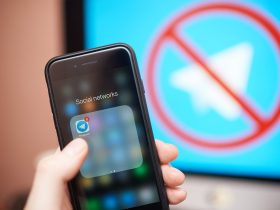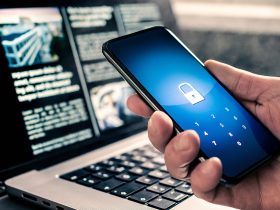The world of social media is bursting with cryptic abbreviations and acronyms — NSFW is one of them. If a certain item of content is labeled with this abbreviation, it’s likely that the content is personal and not meant for the workplace so you should probably avoid looking at it when there. Read on to learn what NSFW means and how you can use Avira Phantom VPN to strengthen your online privacy.
What does NSFW mean?
NSFW stands for “not safe for work” or “not suitable for work”. You may have already seen this term on social media before.
The abbreviation NSFW is intended to help you tell quickly and easily that a particular post should not be viewed during working hours or on your work computer.
What does NSFW cover?
A post or email attachment marked NSFW can include images, audio files, as well as videos that have been shared on Facebook or other social media platforms. Mostly it flags suggestive pictures, a lot of nudity, or adult, vulgar, or violent content.
In apps such as Reddit, various areas or channels are marked as NSFW and you can also enter #NSFW on Twitter to call up posts that are unsuitable for viewing at work.
NSFW content is often not displayed directly on websites but only appears once clicked. By providing this warning, providers are preparing you for what’s about to hit your screen so you’re aware.
If you ever come across content marked NSFL, avoid it at all costs. That’s because this abbreviation means “not safe for life” and is used to refer to content that’s considered highly disturbing due to its highly violent, disgusting, or cruel nature. NSFL is basically a step up from NSFW (not safe for work).
Why is it called NSFW?
Originally used mainly on internet forums and chat services, the abbreviation NSFW has become more commonplace now. As a result, the designation NSFW is now considered universal for flagging content that you’re better off not consuming at work.
From a linguistic point of view, NSFW is what’s known as an acronym — a word formed from the initial letters of other words. As you can imagine, there are bucket loads of acronyms in use nowadays. If you’re interested, check out this list of internet slang.
What does NSFW mean on Discord, Twitter, TikTok, YouTube, Tinder?
Discord is an online service for instant messaging, chat as well as voice and video conferencing and is considered a trailblazer in instant messaging solutions. This service was originally created for computer gamers so they could exchange potential strategies quickly while concentrating on the game. And because speed in coordination is crucial for success in executing joint strategies, acronyms took hold in the gaming scene where gamers could communicate entire sentences in a matter of letters.
Now, such instant messaging services are also built in to other online portals’ services to get us to engage with others directly. There, just like on social networks, the use of acronyms is commonplace.
Hashtagging or flagging a post with NSFW often serves as a content warning, urging you to use discretion or avoid the post while in a professional or public setting. That’s because viewing or exchanging intimate pictures or videos — especially via Tinder — can be borderline dangerous during working hours and on public Wi-Fi hotspots.
Just like on TikTok, Twitter, or on YouTube, in most cases NSFW posts are not displayed right away. Instead, you must first click the post in question to view it.
How can you protect yourself from NSFW?
The easiest way to protect yourself from NSFW content is to avoid clicking posts marked as NSFW in the first place. But we’re only human, and we’re more likely to give in to temptation than make a common-sense decision — which is why we tend not to think about the embarrassment it might cause us.
However, if you do view NSFW content at work or when using public Wi-Fi hotspots, this can not only be embarrassing but also risky.
- In many cases, publishers distribute their NSFW content via systems that are not particularly well secured, making it easy for cybercriminals to exploit security flaws and get hold of your data.
- Your employer’s probably got you to sign up to abide by standards in your employment contract when using the internet at work and on the company computer — something you follow to the letter, of course. You also likely know that IT managers (have to) also track your internet activities in certain cases, for example when they receive a security warning.
A VPN can help you better protect your online privacy when consuming NSFW content
To round off our article, we’ve got another acronym for you: VPN. It stands for “virtual private network” and can help you strengthen your online privacy when viewing NSFW content. Since a VPN changes your IP address, you can switch your location virtually and surf anonymously.
Thanks to AES 256 encryption in reputable VPN solutions, you can restrict or even prevent tracking of what you get up to online — minimizing the opportunities for cybercriminals to steal and decrypt your data — especially when surfing on insecure public Wi-Fi hotspots.
Avira Phantom VPN is available for Windows PCs and Macs as well as Android and iOS devices — plus it’s included with the free all-in-one-solutions Avira Free Security for Windows and Mac, Avira Antivirus Security for Android, and Avira Mobile Security for iOS. Avira Phantom VPN includes 500 MB of data per month so you can surf to your heart’s content — or upgrade whenever you want to the Pro version for uncapped freedom to surf freely.














